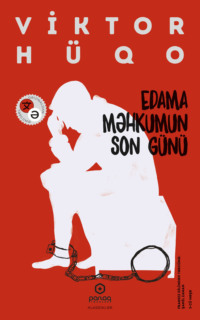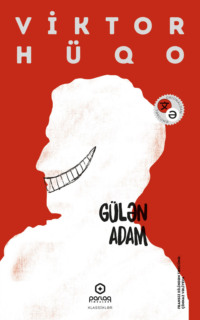 полная версия
полная версияNapoleon the Little
"I denounce to you four great public perils. Your political system bears that within it that will destroy it. It is incumbent upon you to transform your government root and branch, the army, the clergy, and the magistracy: to suppress here, retrench there, remodel everything, or perish through these four institutions, which you consider as lasting elements, but which are elements of dissolution."
Murmurs. He exclaims: "Do you know what your centralized administration may become in the hands of a perjured executive power? A vast treason, carried into effect at one blow over the whole of France, by every office-holder without exception."
Murmurs break out anew with redoubled violence; cries of "order!" The orator continues: "Do you know what your standing army may become at any moment? An instrument of crime. Passive obedience is the bayonet ever pointed at the heart of the law. Yes, here, in this France, which is the initiatress of the world, in this land of the tribune and the press, in this birthplace of human thought, yes, the time may come when the sword will rule, when you, inviolable legislators, will be collared by corporals, when our glorious regiments will transform themselves, for the profit of one man and to the shame of the nation, into gold-laced hordes and pretorian bands, when the sword of France will become a thing that strikes from behind, like the dagger of a hired assassin, when the life-blood of the first city in the world, done to death, will splash the gold epaulettes of your generals!"
The murmur becomes an uproar, cries of "Order!" are heard from all quarters. The orator is interrupted: "You have been insulting the government, now you insult the army!" The President calls the orator to order.
The orator resumes:
"And if it should happen some day that a man, having in his hand the five hundred thousand officeholders who constitute the government, and the four hundred thousand soldiers composing the army, if it should happen that this man should tear up the Constitution, should violate every law, break every oath, trample upon every right, commit every crime, do you know what your irremovable magistrates, instructors in the right, and guardians of the law, would do? They would hold their tongues."
The uproar prevents the orator from completing his sentence. The tumult becomes a tempest. – "This man respects nothing. After the government and the army, he drags the magistracy in the mire! Censure! censure!" The orator is censured and the censure entered in the journal. The President declares that, if he continues, the Assembly will proceed to a vote, and the floor will be taken from him.
The orator continues: "And your paid clergy! and your office-holding bishops! On the day when a pretender shall have employed in such enterprises the government, the magistracy, and the army; on the day when all these institutions shall drip with the blood shed by and for the traitor; when, placed between the man who has committed the crimes and God who orders an anathema to be launched against the criminal – do you know what these bishops of yours will do? They will prostrate themselves, not before God, but before man!"
Can you form any idea of the frenzied shouts and imprecations that would greet such words? Can you imagine the shouts, the apostrophes, the threats, the whole Assembly rising en masse, the tribune escaladed and with difficulty guarded by the ushers! The orator has profaned every sanctified ark in succession, and he has ended by profaning the Holy of Holies, the clergy! And what does he mean by it all? What a medley of impossible and infamous hypotheses! Do you not hear Baroche growl, and Dupin thunder? The orator would be called to order, censured, fined, suspended from the Chamber for three days, like Pierre Leroux and Émile de Girardin; who can tell, perhaps expelled, like Manuel.
And the next day, the indignant citizen would say: "That is well done!" And from every quarter the journals devoted to order would shake their fist at the Calumniator. And in his own party, on his usual bench in the Assembly, his best friends would forsake him, and say: "It is his own fault; he has gone too far; he has imagined chimeras and absurdities."
And after this generous and heroic effort, it would be found that the four institutions that have been attacked were more venerable and impeccable than ever, and that the question, instead of advancing, had receded.
V
WHAT PROVIDENCE HAS DONE
But Providence, – Providence goes about it differently. It places the thing luminously before your eyes, and says, "Behold!"
A man arrives some fine morning, – and such a man! The first comer, the last comer, without past, without future, without genius, without renown, without prestige. Is he an adventurer? Is he a prince? This man has his hands full of money, of bank-notes, of railroad shares, of offices, of decorations, of sinecures; this man stoops down to the office-holders, and says, "Office-holders, betray your trust!"
The office-holders betray their trust.
What, all? without one exception?
Yes, all!
He turns to the generals, and says: "Generals, massacre."
And the generals massacre.
He turns towards the irremovable judges, and says: "Magistrates, I shatter the Constitution, I commit perjury, I dissolve the sovereign Assembly, I arrest the inviolate members, I plunder the public treasury, I sequester, I confiscate, I banish those who displease me, I transport people according to my fancy, I shoot down without summons to surrender, I execute without trial, I commit all that men are agreed in calling crime, I outrage all that men are agreed in calling right; behold the laws – they are under my feet."
"We will pretend not to see any thing," say the magistrates.
"You are insolent," replies the providential man. "To turn your eyes away is to insult me. I propose that you shall assist me. Judges, you are going to congratulate me to-day, me who am force and crime; and to-morrow, those who have resisted me, those who are honor, right, and law, them you will try, – and you will condemn them."
These irremovable judges kiss his boot, and set about investigating l'affaire des troubles.
They swear fidelity to him, to boot.
Then he perceives, in a corner, the clergy, endowed, gold-laced, with cross and cope and mitre, and he says: —
"Ah, you are there, Archbishop! Come here. Just bless all this for me."
And the Archbishop chants his Magnificat.
VI
WHAT THE MINISTERS, ARMY, MAGISTRACY, AND CLERGY HAVE DONE
Oh! what a striking thing and how instructive! "Erudimini," Bossuet would say.
The Ministers fancied that they were dissolving the Assembly; they dissolved the government.
The soldiers fired on the army and killed it.
The judges fancied that they were trying and convicting innocent persons; they tried and convicted the irremovable magistracy.
The priests thought they were chanting hosannahs upon Louis Bonaparte; they chanted a De profundis upon the clergy.
VII
THE FORM OF THE GOVERNMENT OF GOD
When God desires to destroy a thing, he entrusts its destruction to the thing itself.
Every bad institution of this world ends by suicide.
When they have weighed sufficiently long upon men, Providence, like the sultan to his viziers, sends them the bowstring by a mute, and they execute themselves.
Louis Bonaparte is the mute of Providence.
CONCLUSION – PART FIRST
PETTINESS OF THE MASTER – ABJECTNESS OF THE SITUATION
I
Never fear, History has him in its grip.
If perchance it flatters the self-love of M. Bonaparte to be seized by history, if perchance, and truly one would imagine so, he cherishes any illusion as to his value as a political miscreant, let him divest himself of it.
Let him not imagine, because he has piled up horror on horror, that he will ever raise himself to the elevation of the great historical bandits. We have been wrong, perhaps, in some pages of this book, here and there, to couple him with those men. No, although he has committed enormous crimes, he will remain paltry. He will never be other than the nocturnal strangler of liberty; he will never be other than the man who intoxicated his soldiers, not with glory, like the first Napoleon, but with wine; he will never be other than the pygmy tyrant of a great people. Grandeur, even in infamy, is utterly inconsistent with the calibre of the man. As dictator, he is a buffoon; let him make himself emperor, he will be grotesque. That will finish him. His destiny is to make mankind shrug their shoulders. Will he be less severely punished for that reason? Not at all. Contempt does not, in his case, mitigate anger; he will be hideous, and he will remain ridiculous. That is all. History laughs and crushes.
Even the most indignant chroniclers will not help him there. Great thinkers take satisfaction in castigating the great despots, and, in some instances, even exalt them somewhat, in order to make them worthy of their rage; but what would you have the historian do with this fellow?
The historian can only lead him to posterity by the ear.
The man once stripped of success, the pedestal removed, the dust fallen, the tinsel and spangles and the great sabre taken away, the poor little skeleton laid bare and shivering, – can one imagine anything meaner and more pitiful?
History has its tigers. The historians, immortal keepers of wild beasts, exhibit this imperial menagerie to the nations. Tacitus alone, that great showman, captured and confined eight or ten of these tigers in the iron cage of his style. Look at them: they are terrifying and superb; their spots are an element in their beauty. This is Nimrod, the hunter of men; this, Busiris, the tyrant of Egypt; this, Phalaris, who baked living men in a brazen bull, to make the bull roar; this, Ahasuerus, who flayed the heads of the seven Maccabees, and had them roasted alive; this, Nero, the burner of Rome, who smeared Christians with wax and pitch, and then set them alight as torches; this, Tiberius, the man of Capræa; this, Domitian; this, Caracalla; this, Heliogabalus; that other is Commodus, who possesses an additional claim to our respect in the horrible fact that he was the son of Marcus Aurelius; these are Czars; these, Sultans; these, Popes, among whom remark the tiger Borgia; here is Philip, called the Good, as the Furies were called the Eumenides; here is Richard III, sinister and deformed; here, with his broad face and his great paunch, Henry VIII, who, of five wives that he had, killed three, one of whom he disemboweled; here is Christiern II, the Nero of the North; here Philip II, the Demon of the South. They are terrifying: hear them roar, consider them, one after the other; the historian brings them to you; the historian drags them, raging and terrible, to the side of the cage, opens their jaws for you, shows you their teeth and their claws; you can say of every one of them: "That is a royal tiger." In fact, they are taken from all the thrones of the earth. History parades them through the ages. She prevents them from dying; she takes care of them. They are her tigers.
She does not mingle jackals with them.
She puts and keeps apart the disgusting beasts. M. Bonaparte will be with Claudius, with Ferdinand VII of Spain, with Ferdinand II of Naples, in the hyena cage.
He is a bit of a brigand, and a great deal of a knave. One is always conscious of the poor prince of industry, who lived from hand to mouth in England; his present prosperity, his triumph, his empire, and his inflation amount to nothing; the purple mantle trails over shoes down at heel. Napoleon the Little, nothing more, nothing less. The title of this book is well chosen.
The meanness of his vices prejudices the grandeur of his crimes. What would you have? Peter the Cruel massacred, but he did not steal; Henry III assassinated, but he did not swindle; Timour crushed children under horses' hoofs, much as M. Bonaparte exterminated women and old men on the boulevard, but he did not lie. Hear the Arabian historian: "Timour-Beg, Sahib-Keran (master of the world and of the age, master of the planetary conjunctions), was born at Kesch, in 1336; he slaughtered a hundred thousand captives; as he was besieging Siwas, the inhabitants, to mollify him, sent him a thousand little children, bearing each a Koran on its head, and crying, 'Allah! Allah!' He caused the sacred books to be removed with respect, and the children to be crushed beneath the hoofs of wild horses. He used seventy thousand human heads, with cement, stone, and brick, in building towers at Herat, Sebzvar, Tekrit, Aleppo, and Bagdad; he detested lying; when he had given his word, men could rely upon it."
M. Bonaparte is not of this stature. He has not that dignity which the great despots of the East and of the West mingle with ferocity. The amplitude of the Cæsars is wanting in him. To bear one's self worthily and make a fair appearance among all the illustrious executioners who have tortured mankind in the course of four thousand years, one must not have any mental hesitation between a general of division and a bass-drummer on the Champs-Elysées; one must not have been a constable in London; one must not have undergone, with lowered eyes, in the Court of Peers, the haughty scorn of M. Magnan; one must not have been called "pickpocket" by the English newspapers; one must not have been menaced with Clichy; in a word, there must have been nothing of the sneak in the man.
Monsieur Louis Napoleon, you are ambitious, you aim high, but you must have the truth told you. Well, what would you have us do in the matter? In vain have you, by overturning the tribune of France, realized, after your fashion, the wish of Caligula: "I would that mankind had but one head, so that I might cut it off with a blow;" in vain have you banished the republicans by thousands, as Philip III expelled the Moors, and as Torquemada drove out the Jews; in vain have you dungeons like Peter the Cruel, hulks like Hariadan, dragonnades like Père Letellier, and oubliettes like Ezzelino III; in vain have you perjured yourself like Ludovic Sforza; in vain have you massacred and assassinated en masse like Charles IX; in vain have you done all this, in vain have you recalled all these names to men's minds when they think of your name, – you are nothing but a rogue. A man is not a monster for the wishing.
II
From every agglomeration of men, from every city, from every nation, there inevitably arises a collective force.
Place this collective force at the service of liberty, let it rule by universal suffrage, the city becomes a commune, the nation becomes a republic.
This collective force is not, of its nature, intelligent. Belonging to all, it belongs to no one; it floats about, so to speak, outside of the people.
Until the day comes when, according to the true social formula, —as little government as possible, – this force may be reduced to a mere street and road police, paving the streets, lighting the lamps, and looking after malefactors; until that day comes, this collective force, being at the mercy of many chances and many ambitions, needs to be guarded and protected by jealous, clear-sighted, well-armed institutions.
It may be subjugated by tradition, it may be surprised by stratagem.
A man may rush upon it, seize it, bridle it, quell it, and cause it to trample upon the citizens.
The tyrant is the man, who, born of tradition, like Nicholas of Russia, or of stratagem, like Louis Bonaparte, seizes for his own profit, and according to his caprice disposes of the collective force of a people.
This man, if he be by birth what Nicholas is, is the enemy of society; if he have done what Louis Bonaparte has done, he is a public robber.
The former has no account to settle with regular legal justice, with the articles of codes. He has behind him, spying upon and watching him, hatred in their hearts, and vengeance in their hands, Orloff in his palace, and Mouravieff among the people; he may be assassinated by one of his army, or poisoned by one of his family; he runs the risk of barrack conspiracies, of revolts of regiments, of secret military societies, of domestic plots, of sudden, mysterious maladies, of terrible blows, of great catastrophes. The other ought simply to go to Poissy.
The former has the wherewithal to die in the purple, and to end his life with pomp and royally, as monarchs end and tragedies. The other must live; live between four walls behind bars, through which the people can look at him, sweeping courtyards, making horse-hair brushes or list shoes, emptying buckets, with a green cap on his head, wooden shoes on his feet, and straw in his shoes.
Ah! ye leaders of the old parties, ye men of absolutism, in France you voted en masse among 7,500,000; outside of France you applauded, taking this Cartouche for the hero of order. He is ferocious enough for it, I admit; but look at his size. Don't be ungrateful to your real colossi; you have cashiered your Haynaus and your Radetzkys too precipitately. Above all, weigh this comparison, which so naturally presents itself to the mind. What is this Mandrin of Lilliput beside Nicholas, Czar, Emperor, and Pope, a power half-Bible, half-knout, who damns and condemns, drills eight hundred thousand soldiers and two hundred thousand priests, holds in his right hand the keys of paradise, and in his left hand the keys of Siberia, and possesses, as his chattel, sixty millions of men – their souls as if he were God, their bodies as if he were the tomb!
III
If there should not be ere long a sudden, imposing, and overwhelming catastrophe, if the present situation of the nation should be prolonged and endure, the grand injury, the fearful injury, would be the moral injury.
The boulevards of Paris, the streets of Paris, the rural districts and the towns of twenty departments of France, were strewn on the 2nd of December with dead and dying citizens; there were seen, before their thresholds, fathers and mothers slaughtered, children sabred, dishevelled women in pools of blood, disemboweled by grape-shot; there were seen, in the houses, suppliants massacred, some shot in heaps in their cellars, others despatched by the bayonet under their beds, others struck down by a bullet on their own hearths. The impress of bloodstained hands of all sizes may be seen at this moment, here on a wall, there on a door, there in a recess; for three days after the victory of Louis Bonaparte, Paris walked in ruddy mire; a cap full of human brains was hung on a tree on Boulevard des Italiens. I, who write these lines, saw, among other victims, on the night of the 4th, near the Mauconseil barricade, an aged white-haired man, stretched on the pavement, his bosom pierced with a bayonet, his collar-bone broken; the gutter that ran beneath him bore away his blood. I saw, I touched with my hands, I helped to undress, a poor child seven years old, killed, they told me, on Rue Tiquetonne; he was pale, his head rolled from one shoulder to the other while they were taking off his clothes; his half-closed eyes were fixed and staring, and as I leaned over his half-opened mouth, it seemed that I could still hear him murmur faintly, "Mother!"
Well, there is something more heart-rending than murdered child, more lamentable than that old man shot dead, more horrible than that cap full of human brains, more frightful than those pavements red with carnage, more irreparable than those men and women, those fathers and those mothers, stabbed and murdered, – it is the vanishing honour of a great people!
Assuredly those pyramids of dead bodies which one saw in the cemeteries, after the wagons from the Champ-de-Mars had emptied their contents; those immense open trenches, which they filled in the morning with human bodies, making speed because of the increasing light of day, – all this was frightful; but what is still more frightful is to think that, at this hour, the nations are in doubt; and that in their eyes France, that great moral splendour, has disappeared!
That which is more heart-rending than skulls cleft by the sword, than breasts riddled by bullets, more disastrous than houses pillaged, than murder filling the streets, than blood shed in rivers, is to think that now, among all the peoples of the earth, men are saying to one another: "Do you know that that nation of nations, that people of the 14th of July, that people of the 10th of August, that people of 1830, that people of 1848, that race of giants which razed bastiles, that race of men whose faces cast a bright light, that fatherland of the human race which produced heroes and thinkers, those heroes who made all the revolutions and gave birth to all births, that France whose name meant liberty, that soul of the world, so to say, which shone resplendent in Europe, that light… Well! some one has stepped upon it, and put it out. There is no longer a France. It is at an end. Look! everywhere darkness. The world is feeling its way."
Ah! it was so grand. Where are those times, those glorious times, interspersed with storms, but glorious, when all was life, when all was liberty, when all was glory? those times when the French people, awake before all others, and up before the light, their brows illumined by the dawn of the future already risen for them, said to the other nations, still drowsy and overborne, and scarcely able to shake their chains in their sleep: "Fear naught, I work for all, I dig the earth for all, – I am the workman of the Almighty!"
What profound grief! Regard that torpor where formerly there was such power! that shame, where formerly there was such pride! that noble people, whose heads were once held erect and are now lowered!
Alas! Louis Bonaparte has done more than kill persons, he has caused men's minds to dwindle, he has withered the heart of the citizen. One must belong to the race of the invincible and the indomitable, to persevere now in the rugged path of renunciation and of duty. An indescribable gangrene of material prosperity threatens to cause public honesty to degenerate into rottenness. Oh! what happiness to be banished, to be disgraced, to be ruined, – is it not, brave workmen? Is it not, worthy peasants, driven from France, who have no roof to shelter you, and no shoes to your feet? What happiness to eat black bread, to lie on a mattress thrown on the ground, to be out at elbows, to be away from all this, and to those who say to you: "You are French!" to answer, "I am proscribed!"
What a pitiful thing is this delight of self-interest and cupidity, wallowing in the slough of the 2nd of December! Faith! let us live, let us go into business, let us speculate in zinc and railway shares, let us make money; it is degrading but it is an excellent thing; a scruple less, a louis more; let us sell our whole soul at that rate. One runs to and fro, one rushes about, one cools his heels in anterooms, one drinks deep of every kind of shame, and if one cannot get a concession of railways in France or of lands in Africa, one asks for an office. A host of intrepid devotions besiege the Elysée, and collect about the man. Junot, beside the first Bonaparte, defied the splashing of shells, these fellows beside the second, defy the splashing of mud. What care they about sharing his ignominy, provided they share his fortune? The competition is to see who shall carry on this traffic in himself most cynically; and among these creatures there are young men with pure limpid eyes, and all the appearance of generous youth; and there are old men, who have but one fear, which is, that the office solicited may not reach them in time, and that they may not succeed in dishonouring themselves before they die. One would sell himself for a prefecture, another for a collectorship, another for a consulate; one wants a tobacco license, another an embassy. All want money, some more, some less; for it is of the salary they think, not of the duties. Every one has his hand out. All offer themselves. One of these days we shall have to appoint an assayer of consciences at the Mint.
What! this is what we have come to! What! those very men who supported the coup d'état, those very men who recoiled from the red croquemitaine and the twaddle about Jacquerie in 1852; those very men to whom that crime seemed a good thing, because, according to them, it rescued from peril their consols, their ledgers, their money-boxes, their bill-books, – even they do not comprehend that material interest, surviving alone, would, after all, be only a melancholy waif in an immense moral shipwreck, and that it is a fearful and monstrous situation, when men say: "All is saved, save honour!"









